It is all too easy to get excited about the next big sustainable technology for saving energy or producing non-polluting power – and forget the flaws in many of these ideas. Some of the best projects show smart out-of-the-box thinking but lack feasibility or, in some cases, might do more harm than good. While these ideas may not work at least scientists, politicians and other innovators are beginning to explore alternatives.
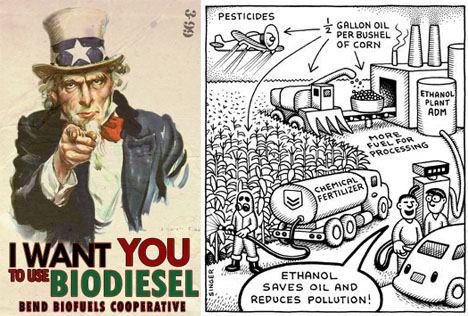
Biofuel has been a buzzward in green political circles for a long time, but are biofuels truly a sustainable solution? Many argue that they are not. Land used in the production of biofuels often replaces much-needed farmland or is cut out of important ecosystems around the world. In short: the big picture for biofuels does not look bright given the vast natural resources that are required to produce them in the first place.
Fusion Power is that fabled cheap-and-clean energy source that always seems to be just on the horizon and out of reach. How many times in the past decades have we heard that this sustainable technology is just a few more years away? Sure, it might be true this time, but there’s no way to say. Some argue though that the mood (and venture capital) is shifting, but is it worthwhile putting so many resources toward something that is anything but a sure bet?
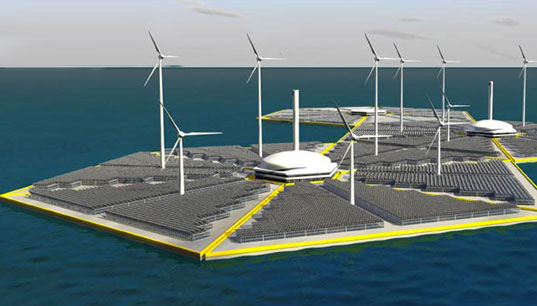
Artificial Islands have been a conceptual idea for ecological power generation for over a decade. The basic idea: use wind, wave and solar power in ideal offshore locations to produce onshore power. The latest idea: use thermal variation to generate power. The problem: setting up and maintaining these offshore islands could be cost and energy prohibitive, a common problem with new technologies.
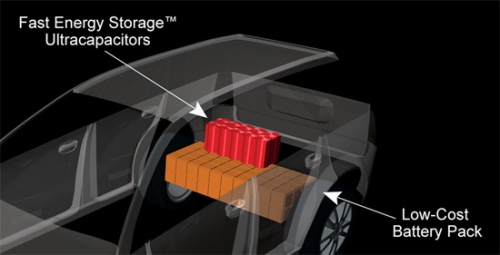
Plug-In Hybrids are one proposed solution to transportation fuel in a world where soybeans, biofuels and other renewable/sustainable energy sources are competing to be the next be the next big thing. Batteries are the big limiting factor here because they have to not only store a great deal of energy but also be able to output energy at variable intensity in order to sustain both normal use and a range of acceleration rates.
Zero-Pollution Cars have been proposed that would keep rather than exhaust carbon which would then be recycled into usable fuel at a conversion facility. The trick, of course, is converting said non-exhaust on-site within the vehicle itself before it is transported back to a central location. Beyond that, the technology for converting the fuel back is feasible but its redistribution would require extensive and energy-consuming networks.
Gravity Powered devices (such as lamps) sound like a great idea, but no energy is free and the scalability of this concept is questionable. The basic idea: a weight is raised then generates power for hours as it works its way down the body of the lamp. A neat idea on a small scale that could save some energy but may not have many applications beyond more localized novelty and concept devices that still take quite a bit of energy to create.
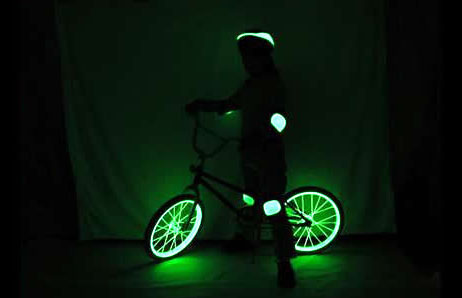
A 15-Year Light Source that requires no recharges sounds great – at first anyway. It seems that this GloPaint innovation will last a long time as promised but leftover materials are of questionable toxicity so there is still waste to be considered – just fifteen years later. This may help replace emergency lighting in the short term but still isn’t a long term solution.

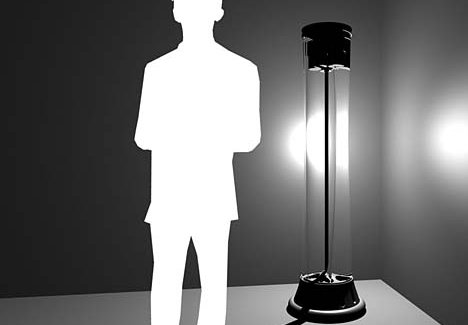
very good writing! these techno. in great innovation but we should consider! Thanks for the information!
It’s only a matter of time before someone somewhere will have that “eureeka” moment and come up with a viable alternative to fossil fuels.
Until then we need to reduce carbon emissions by utilising proven energy saving products and methodology that are in abundance on a worldwide scale.
Governments around the world should agree a standard for innovative energy saving products in order to substantiate the saving they are claiming to make. Once the product is approved it should be added to a category that attracts a 0% import duty in order to make it attractive to promote and market all over the world.
R.O.I. (return on investment) is the driving force in the decision making process of most organisations when considering energy saving products. This mindset needs to be changed to one of reducing carbon emissions by whatever means possible in every area of operation including the residential sector.
I see a ton of FUD in this column. Stop and think about how many tons of ethanol producing crops we dump to rot every year that still recieve all those chemicals. I would rather seem them converted into something useful than just seeing them wasted.
Fusion – It will get there eventually, why are you getting your panties in a bunch. Is it a bad thing because you can’t have it right now? Reminds me of a George Carlin skit.
The floating islands is a novel idea, and with Dubai spending BILLIONS on creating artificial islands already when they have a whole desert to expand into, it baffles me that they haven’t built a couple of these already.
Hybrid cars – True batteries still have a long ways to go, and the biggest problem I see is their recycling lifespan. However, your column imparts an idea that they will never improve, which is ridiculous. Car manufacturing companies are now dumping millions into new battery research to overcome these limitations. If they wouldn’t see a profit from these cars taking off, do you think they would have bothered with it previously?
Zero Pollution Cars – Give me a break, you’re going to the gas station anyways, dump your collected emissions there. They can give you price break on your gas and sell it back to whatever collection firm is in the area. Jobs are created, environment is cleaner, and you save money, yeah it’s a bad idea.
Gravity Powered Devices – You are a lazy SOB aren’t you. Too lazy to spend fifteen seconds of your time moving a weight up a chain to gain hours of light that is independant of the grid? Remind me never to shelter at your house in a storm. You know, years ago people would spend that same amount of time ON A CLOCK.
15 year light source – This is probably the only thing I agree on, since the power driving that light is a radioactive source that would be extremely harmful if you came in actual contact with it.
Martin – Return on Investment is king, otherwise there is no reason to persue anything. Everybody needs to get something out of the effort that they are putting into developing/manufacturing. Stop and think about it like this. I sell you a house for $20,000, that cost $20,000 worth of materials to produce. I hope you enjoy said house, because now I am unable to pay my own rent. Why, because I made no profit on the sale of the house, and thus others down the line from me will suffer from my inability to make said profit. The profit is my return on the $20,000 I invested in building your house. That is why R.O.I. is the driving force behind all decisions. This is Micro Econ 101 stuff, not rocket science.
Articles like this are the problem with the internet, free knowledge is good and all, but it has become so easy to use even the idiots can make a blog and post their rants, thus driving down the overall quality of that free knowledge.
I think biofuels will eventually become viable as we do more research on clippings and switch grass. NOT ALL biofuel has to come from a food source. Switch grass is one source that is already MUCH more efficient than corn based biofuel.
Alternative Eco friendly renewable energy is definitely the way to go. There are so many options today with so many new discoveries happening each day. I read of solar power becoming more and more efficient with printed panels that are 2+ times better efficiency at 1/4 the cost to make! Lots of new cool high efficiency wind turbines you name it.
The government needs need to make some serious long term $$ commitments to get the momentum going. Just image if they used 1/2 the money for the Iraq war. With existing technologies we in theory could be free from oil. It’s pretty sad what lengths the government will go to protect oil interests. There is such a deep good old boy network involved. Greed is the motive here. We need to shift from that greed and do what needs to be done.
We all need to do our part and get ourselves out of this energy and economic crisis!
All this article does is highlight that “sustainable” is a myth in any universe that has entropy in it.
Regarding biofuels – this country is capable of growing so much more than it currently is. I know here in North Carolina there is so much farmland that is no longer farmed and is fallow. Many farmers in the area are getting out of farming – I think it would be a way of keeping family farming alive, growing fuel crops.
I think if we all use a little conservation in the energy we use, it could be alot better, the problem is getting everyone to do it, and we slowly but surely are getting bigger corporations on the wagon for conservation of energy, we see ads like that send a good message I believe, and its easy to do these little things, and it truely does all add up, but its easy to get caught up in good ideas and miss the problems that come with it… i liked this article for exposing that other side. All sides need to be explored.
The mentioned gravity lamp is not working.
It is just a concept that was never build.
Generally speaking, I think we need less technology, not more. But I still want a gravity powered lamp…
Excellent point on the Ethanol bit.
Some people also seem to have forgotten that most of our beef and poultry are fed corn, which means higher priced meats as the price of corn rises due to demand.
A solution: stop feeding the cattle and poultry corn. it’s bad for them and makes them less nutritous. Feed them grass! Grass-fed beef is much higher in Omega-3 fatty acids tastes better, and is lower cholesterol than it’s corn-fed counterparts.
Any move towards alternative , environment friendly and renewable energy is a move to the right direction. Their technology may have several shortcomings and pitfalls , but it's to be expected to a new and untried technology.
I have a strong preference towards the hybrid cars because of how much progress have been made in this particular technology , all that's left to develop the technology that will make a superior quality battery that it small , durable and affordable , this could be the new wave of green vehicles.
Yep, as long as some of the politics and money can be taken out of the
equation or alternatively, used for the benefit of Eco, hybrids should be a
good starting point to weaning off of oil.
i agree with Jeremy, we need LESS stuff not more. the more products and crap thats being produced the more pollution. there needs to be more human powered vehicles and devices, (bikes, winding flashlights and watches etc.) this world has survived for thousands of years with none of the technology we have now, what makes us think that now this tech is necessary for basic life? we wouldn't need water purifiers if there was nothing to purify the water from! simplicity is the only way…
i agree with Jeremy, we need LESS stuff not more. the more products and crap thats being produced the more pollution. there needs to be more human powered vehicles and devices, (bikes, winding flashlights and watches etc.) this world has survived for thousands of years with none of the technology we have now, what makes us think that now this tech is necessary for basic life? we wouldn't need water purifiers if there was nothing to purify the water from! simplicity is the only way…
The gravity powered lamp – the Gravia – is in the same realm of technology as the USS Enterprise's transporter; it doesn't exist.
Lifting a 22.7kg weight a couple meters cannot produce more energy than is sufficient to light one LED for 45 minutes. Here's the math:
http://dansdata.blogsome.com/2008/03/03/stop-pr…
Human powered energy might be worth considering.. e.g. hook up a bike machine to batteries that supplement mains power to your house. Keep fit and save energy!
The Gravia is an important reminder that energy production and consumption is as much a matter of maths as conceptual thinking – something which has been a stumbling block to biofuel initiatives.
Let's not buy any more bullshit.
The gravity powered lamp – the Gravia – is in the same realm of technology as the USS Enterprise's transporter; it doesn't exist.
Lifting a 22.7kg weight a couple meters cannot produce more energy than is sufficient to light one LED for 45 minutes. Here's the math:
http://dansdata.blogsome.com/2008/03/03/stop-pr…
Human powered energy might be worth considering.. e.g. hook up a bike machine to batteries that supplement mains power to your house. Keep fit and save energy!
The Gravia is an important reminder that energy production and consumption is as much a matter of maths as conceptual thinking – something which has been a stumbling block to biofuel initiatives.
Let's not buy any more bullshit.
I am about to start a blog and your blog gave me much hint how to do it. I really loved to visit your blog. Hope to see more inputs from you in your blog.
regards
charcoal grill